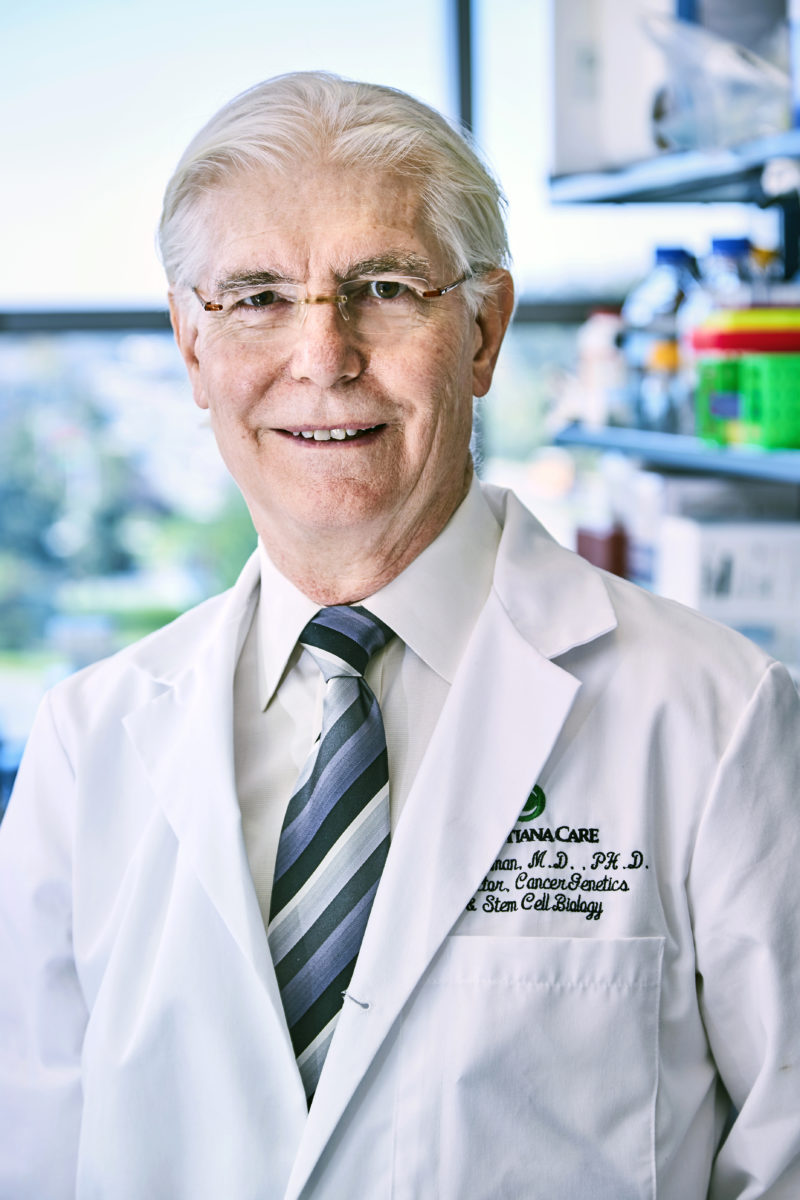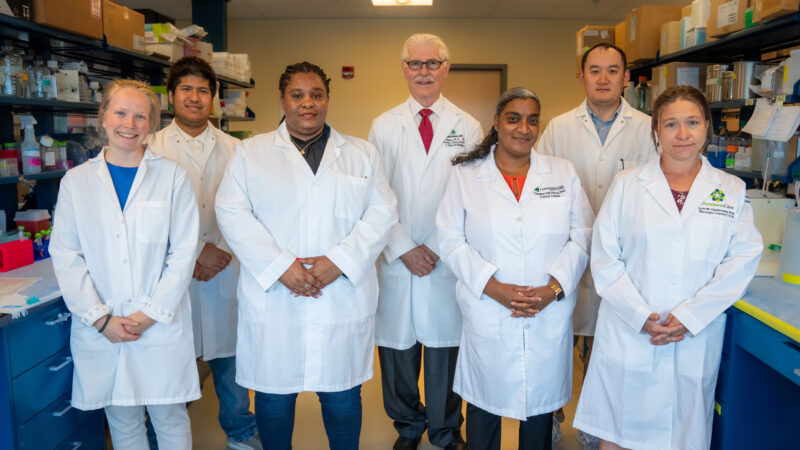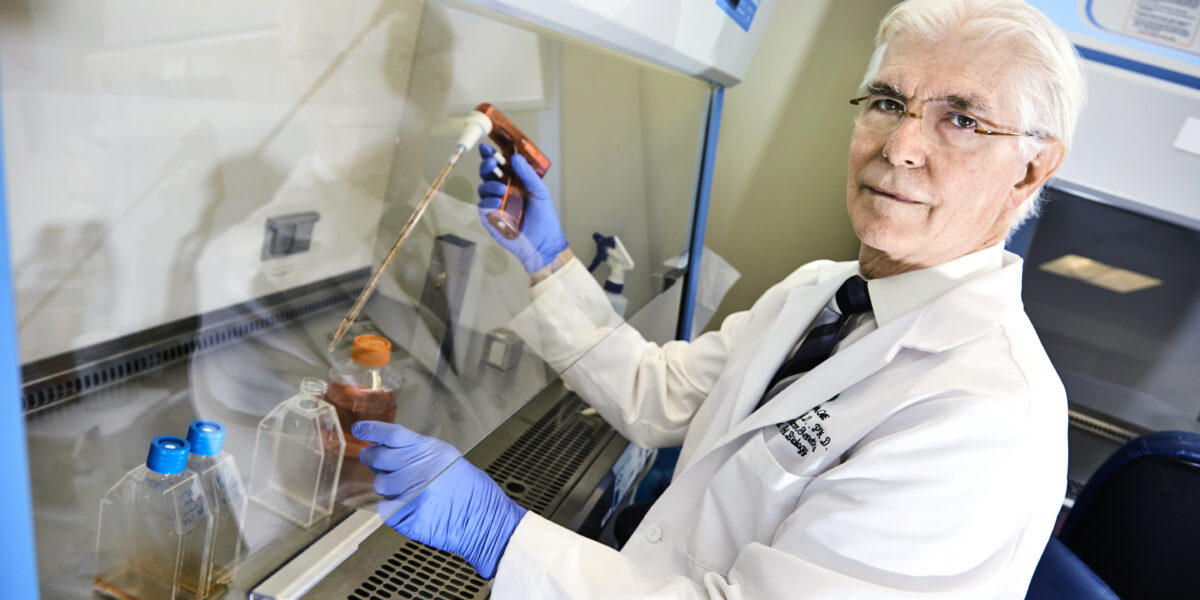
For decades, Bruce Boman, M.D., Ph.D., MSPH, FACP, medical director of Cancer Genetics and Stem Cell Biology, has been making strides in colorectal cancer research. He and his research team focus on gaining a greater understanding of advanced colorectal cancer, with hopes of discovering a treatment or cure.
When colon cancer is caught early, 91% of patients survive five years or longer, according to the American Cancer Society. However, only 13% of patients survive at least five years if the cancer has already spread to distant parts of the body before it’s found. In recent years, colon cancer diagnoses have been rising among adults aged 50 and younger, including cases of advanced colon cancer. Eventually, patients of all ages who have advanced disease may receive life-saving treatments based on Boman’s work.
Boman sat down at ChristianaCare’s Cawley Center for Translational Cancer Research at the Helen F. Graham Cancer Center & Research Institute to discuss his research findings.
What inspired you to focus your research, and your career, on colorectal cancer?
I wanted my work to have a significant impact for oncology patients, and I knew that colorectal cancer is the second-leading cause of cancer deaths. The first-leading cause is lung cancer, but that’s largely caused by an environmental factor – smoking. Colorectal cancer isn’t environmentally related; it arises out of the biology of the disease, which interested me.
Early in his career, Boman had a key role in discovering the main gene mutation that drives colorectal cancer.
Advanced colorectal cancer is a huge health care problem. We can cure roughly half of all colon cancers with surgery, but once patients develop metastatic (advanced) disease, it’s a challenge. We need more effective treatments, even curative treatments. To do that, we need to understand the biology of the disease. That’s what I work on.
You’ve made many research discoveries over the years. What are your most significant findings?
Early in my career, I had an integral role in the discovery of the main gene (APC) mutation that drives colorectal cancer development and growth. Since then, we’ve been trying to understand the mechanism that might be targeted to reverse the effects of that gene mutation.

The gene mutation increases the number of colon cancer stem cells in the body, and it inhibits the ability of these cells to stop growing. So, if we can offset the effect of the gene, then we may make the stem cells sensitive to drugs that will shut down the growth.
We’ve found a link between two pathways that is crucial to the growth of colon cancer stem cells. They’re interconnected: You’ve got to suppress one pathway that’s driving the stem cell overpopulation. That will make the cells sensitive to agents that will then shut the growth down. It’s a two-step approach. The link that we discovered represents a target that we might be able to develop treatments for in the clinic.
‘Complex problems sometimes take a lifetime of work to solve.’ –Bruce Boman
We have also found that colon cancers contain different subpopulations of cancer stem cells, which makes advanced colon cancer difficult to treat. The growth of different cancer stem cells is affected by these same two pathways that drive cancer growth. We’re trying to find out whether drugs might suppress one subpopulation and increase another subpopulation, and see if this would increase the sensitivity of the cancer to certain drugs.
Has any of your research focused on colorectal cancer in younger adults?
Our research relates to the recent surge in cases of colorectal cancer in young individuals. The main gene mutation that we study occurs in cancers that develop in those younger people. We also think that defective function in one of the pathways that we found helps to explain why younger people are getting colon cancer.
How could your research have real-world applications for people with colorectal cancer?
We are exploring medications to test their effects on advanced colorectal cancer. Because there are two pathways affecting cancer stem cell growth, we’re looking at the possibility of drug combinations, to target both pathways.
Click here for more of the groundbreaking cancer research and treatment at ChristianaCare.
The drug combinations that we are looking at have not been combined yet, that I know of, at least for colon cancer. Because the drug combinations might involve medications that are already available, it could potentially fast-track this discovery into the clinic.
What inspires you to continue your research?
I’ve been working on colorectal cancer since I was in medical school, so 30-some years. Complex problems sometimes take a lifetime of work to solve.



